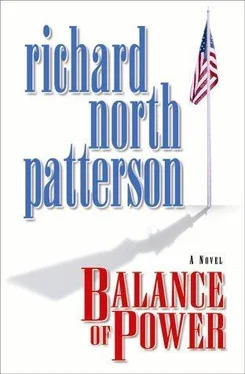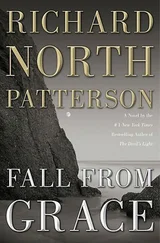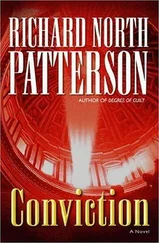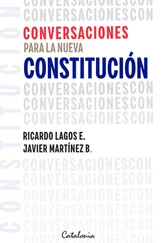Richard Patterson - Balance of Power
Здесь есть возможность читать онлайн «Richard Patterson - Balance of Power» весь текст электронной книги совершенно бесплатно (целиком полную версию без сокращений). В некоторых случаях можно слушать аудио, скачать через торрент в формате fb2 и присутствует краткое содержание. Жанр: Старинная литература, на английском языке. Описание произведения, (предисловие) а так же отзывы посетителей доступны на портале библиотеки ЛибКат.
- Название:Balance of Power
- Автор:
- Жанр:
- Год:неизвестен
- ISBN:нет данных
- Рейтинг книги:5 / 5. Голосов: 1
-
Избранное:Добавить в избранное
- Отзывы:
-
Ваша оценка:
- 100
- 1
- 2
- 3
- 4
- 5
Balance of Power: краткое содержание, описание и аннотация
Предлагаем к чтению аннотацию, описание, краткое содержание или предисловие (зависит от того, что написал сам автор книги «Balance of Power»). Если вы не нашли необходимую информацию о книге — напишите в комментариях, мы постараемся отыскать её.
Balance of Power — читать онлайн бесплатно полную книгу (весь текст) целиком
Ниже представлен текст книги, разбитый по страницам. Система сохранения места последней прочитанной страницы, позволяет с удобством читать онлайн бесплатно книгу «Balance of Power», без необходимости каждый раз заново искать на чём Вы остановились. Поставьте закладку, и сможете в любой момент перейти на страницу, на которой закончили чтение.
Интервал:
Закладка:
Sarah considered him. Abruptly, she asked, "Do you know a man named Norman Conn?"
"Yes. He's a longtime employee."
"Were you ever told that Conn believes Reiner destroyed a document suggesting that the shipment of stolen P-2s, including the murder weapon, were being sold at gun shows by members of a white supremacist group?"
Callister shook his head. In an emphatic tone which suggested genuine anger, he said, "Not until last week."
Nolan held out his hand between Callister and Sarah. "I will caution the witness not to testify regarding conversations with counsel."
"Outside of conversations with counsel," Sarah persisted, "were you ever told that Mr. Reiner destroyed documents?"
"I was not."
At once, Sarah changed tacks. "Are you familiar with Martin Bresler?"
"I am."
"How are you acquainted with Mr. Bresler?"
Callister sat back, seemingly inclined, as he had not been before, to put her question in a fuller context. "Mr. Bresler," he answered, "was the head of an industry group which included Lexington Arms."
Abruptly, Callister checked himself, as though fighting any tendency toward expansiveness. "What was the purpose of Bresler's group?" Sarah prodded.
"To find a middle way between the gun controllers and the SSA." Callister shrugged, seemingly unable to explain his answer without elaboration. "From the beginning of my time at Lexington, I planned to wean us off the revenue we derived from weapons like the P-2. The idea was to market quality and safety, rather than lethality. To me, that meant things like trigger locks and smart guns—weapons designed to protect the user, and prevent accidents or misuse by folks who shouldn't have them." Pausing, Callister seemed to recall anew the promise of his plan. "President Kilcannon may not have been our friend, but he was a fact of life. The idea was to get him and the trial lawyers off our backs. By far the best way to do it was to unify a number of gun companies in a common approach, then see if we could deal with the President. Martin Bresler was supposed to be our vehicle, and the trigger lock agreement with the White House our first step."
Briefly, Sarah scanned her outline. "After that agreement, did Bresler propose a next step?"
"Yes."
To the side, Harrison Fancher watched the witness closely. "What was the next step?" Sarah asked.
Callister grimaced. Tonelessly, he said, "For our five companies to require background checks before our dealers sold any of our weapons at gun shows."
His answer, with its echo of the Bowden murders, seemed to draw the other participants closer to the witness. Even the court reporter cocked her head.
Quietly, Sarah asked, "Did you ever reach agreement with the President?"
"No."
"What stopped you?"
Callister crossed his arms. "All the other CEOs withdrew their financial support from Bresler's group. In essence, they fired him."
"Why was that?"
Briefly Callister seemed to wince at some distasteful memory. "They claimed Bresler was becoming too divisive."
"Did any of them mention the SSA?"
Studiously, it seemed to Sarah, Callister ignored Harrison Fancher's presence. "They all did. They were afraid that the SSA would encourage its members to boycott any company that dealt with Kerry Kilcannon. Four million members, and all of their friends, is a hell of a lot of customers to lose."
Sarah glanced at Fancher. "Did any of them tell you that they'd been threatened by representatives of the SSA?"
"Not directly, no."
"Did you ask?"
"I did not."
Pausing, Sarah replayed the tenor of Callister's answer. "Did the SSA threaten you ?"
"Objection," Fancher snapped. "However pejorative in tone, the question impinges on the defendants' First Amendment right of political association—including the formulation of legislative and political strategy. Such confidential discussions are not subject to discovery."
Sarah did not move her eyes from Callister. "You may answer," she told him.
"He may not." Turning to the witness, Nolan said with quiet emphasis, "The SSA's objection is well taken, George, and the right belongs to Lexington every bit as much as it does the SSA. I'm instructing you not to answer."
Facing Sarah, Callister said, "You heard my counsel, Ms. Dash. I'm under orders not to discuss any conversations with the SSA."
"That's obstruction," Lenihan burst out.
"Mr. Nolan," Sarah interjected with a controlled professionalism she found difficult to maintain, "your objection goes to the heart of our case that the SSA conspired with others to enforce uniform conduct on the American gun industry, in violation of the antitrust laws, contributing to the murders of Mary Costello's family. You've got no basis for your instruction."
"Then take it to the judge . . ."
"You know damn well we can't," Lenihan snapped back. "By the time we get there you'll have passed this unconscionable gun immunity bill."
Nolan smiled. "Acts of Congress are your department, Bob, not mine. My job is to represent my client."
"Which one? The SSA?"
Staring at the table, Callister had seemed to turn inward—most likely, Sarah thought, out of distaste for the whole proceeding. Crisply, she told Lenihan, "Let's call the judge right now."
At once, Sarah rose, took a speakerphone from the corner of the conference room, and placed it on the center of the table. Glancing at her notes, she stabbed out Bond's number, and asked for the law clerk assigned to C ostello versus Lexington Arms.
"We're in the middle of Mr. Callister's deposition," she explained. "A discovery dispute has arisen—an instruction to the witness not to answer questions essential to our case. We're hoping to speak with Judge Bond, describe the issues, and ask for an immediate ruling."
"Very well." The clerk's reedy voice was pompous with borrowed authority. "I'll find out what we want to do."
He put Sarah on hold. Silent, lawyers and witness gazed at the speakerphone as if it were a line to God. The room felt hot and close.
After a few minutes, interminable to Sarah, the clerk returned. "If there's a problem, plaintiff's counsel should file a motion. The judge says he'll rule in the normal course."
The answer struck Sarah in the pit of her stomach. "Thank you," she managed to say. The obligatory words had never felt more hateful.
When the clerk hung up, Nolan was the first to speak, the softness of his voice betraying his residual tension. "Why don't we have lunch, Sarah? The witness has been going long enough."
* * *
Eating a ham sandwich with Lenihan in her office, Sarah tried to bank her outrage. At least Nolan had given her time to think.
"There's something here," she speculated, "that Callister doesn't like."
Lenihan slumped in his chair, a portrait of frustration. "Yeah. Mike Reiner."
Sarah put down the sandwich, gazing out her window at the uneven skyline south of Market Street. "There's something else, I think. I just don't know if I can get to what it is."
* * *
Returning from lunch, Callister looked somber, all trace of humor vanished. "After your fellow CEOs cut off Martin Bresler," Sarah began, "did President Kilcannon contact you directly?"
"Yes. We met three times at Camp David."
"What did the President discuss with you?"
Callister hesitated, eyes narrow with thought, as though still reluctant to divulge his private conversations with the President of the United States. "A potential agreement, brokered by the President with the thirteen cities who'd sued us, to end their litigation against Lexington Arms." His tone took on the edge of self-justification. "A single hundred-million-dollar verdict would wipe out Lexington Arms. The legal fees alone could drain us of our profits. If the President could offer a way out, I thought we should explore it."
Читать дальшеИнтервал:
Закладка:
Похожие книги на «Balance of Power»
Представляем Вашему вниманию похожие книги на «Balance of Power» списком для выбора. Мы отобрали схожую по названию и смыслу литературу в надежде предоставить читателям больше вариантов отыскать новые, интересные, ещё непрочитанные произведения.
Обсуждение, отзывы о книге «Balance of Power» и просто собственные мнения читателей. Оставьте ваши комментарии, напишите, что Вы думаете о произведении, его смысле или главных героях. Укажите что конкретно понравилось, а что нет, и почему Вы так считаете.












